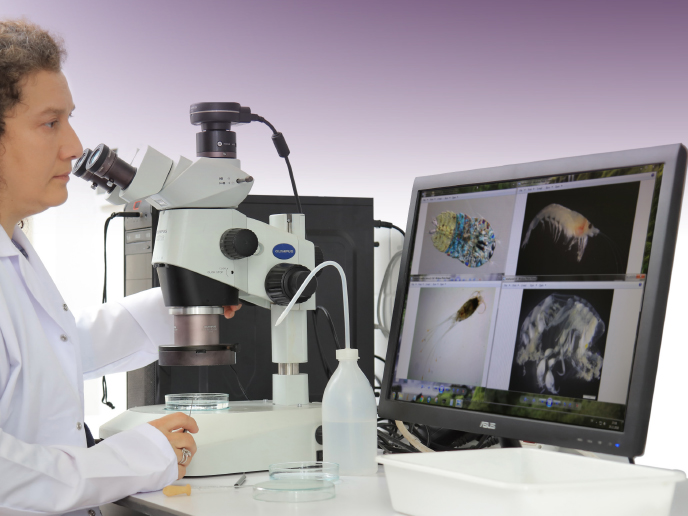Ambitious cooperation for a healthy, resilient and productive Black Sea
The Black Sea region has around 20 million permanent inhabitants spread over seven countries: Bulgaria, Georgia, Moldova, Romania, Russia, Turkey and Ukraine. The region has an added influx of around 6-8 million tourists on average annually. Some 18 major seaports dot the almost 5 000 km long coastline; some of the more prominent being Constanta (Romania), Odessa (Ukraine), Varna (Bulgaria) and of course, Istanbul (Turkey), the largest city on the Black Sea. In the last 50 years, there has been increasing environmental and ecological pressure on the Black Sea basin. This has mainly been due to the impact of human-induced factors, such as eutrophication (the growth of harmful algal blooms) and hypoxia (loss of oxygen), overfishing and the introduction of alien species. Finally, climate change is also having a clear detrimental effect on the Black Sea.
The importance of innovative research cooperation for the future of the Black Sea
The ecosystem services that the Black Sea offers should remain intact for future generations. Research, innovation and cooperation between key stakeholders and countries play a crucial role in increasing the understanding of the Black Sea ecosystem. Results of such cooperation and research feed into the development of evidence-based solutions and policies to address environmental and socio-economic challenges. The EU has encouraged such innovative research and international cooperation through joint initiatives under the umbrella of the Horizon 2020 programme, which will also continue with its successor Horizon Europe. At a policy level, the EU has also been keen to promote research and innovation cooperation for the Black Sea. In May 2019, the Black Sea Strategic Research and Innovation Agenda (SRIA) was launched as the result of a joint venture between the six Black Sea riparian countries and Moldova, along with the involvement of marine experts and the European Commission. The SRIA aims to advance a shared vision for a productive, healthy, resilient and sustainable Black Sea by 2030, while considering its special and unique ecosystem. The Black Sea SRIA constitutes the main science pillar of the Common Maritime Agenda (CMA) for the Black Sea, also endorsed in May 2019.
Highlighting Horizon 2020 projects working for the betterment of the Black Sea
In this Results Pack, we feature six new Results in Brief articles on projects that have recently ended, or are soon to do so. These are a perfect illustration of how initiatives from different marine disciplines have contributed to research on the Black Sea, with the participation of scientists and other stakeholders from the region. This Pack also includes two entirely bespoke articles, one on the continuing work and legacy of the SIMSEA project, that is still making waves today, as well as an article summarising earlier projects that have inspired current Black Sea research. Overall, the projects cover a wide variety of topics, such as: biodiversity science and ecosystem and pollution modelling; social innovation; ecotourism; sustainable mobility in ports; marine spatial planning; and sustainable and inclusive growth. Some of these projects are also key frontrunners for addressing the UN’s Sustainable Development Goals and the European Green Deal, the EU’s flagship climate initiative aiming to make the EU completely carbon-neutral by 2050. This Results Pack also aims to serve as inspiration for a new generation of regional or local researchers and innovators. The work of the projects highlighted can encourage others to dedicate their knowledge and expertise to the improvement of the region’s ecosystem and the lives of the millions of people who call it home. EU initiatives such as the Marie Skłodowska-Curie Actions programme and the Black Sea Young Ambassadors programme, the latter launched by Commissioner Mariya Gabriel, can serve as the right vehicles to support them. The Black Sea, with its marine basin and coastal socio-economic systems combined, can be considered a natural laboratory of global significance, for fundamental and applied science along with sustainability policies for the Blue Economy. It’s a true treasure trove of the natural world! In part, thanks to the initiatives discussed within this Results Pack, efforts to preserve and benefit from its uniqueness will, it’s hoped, only grow stronger over the coming years.



